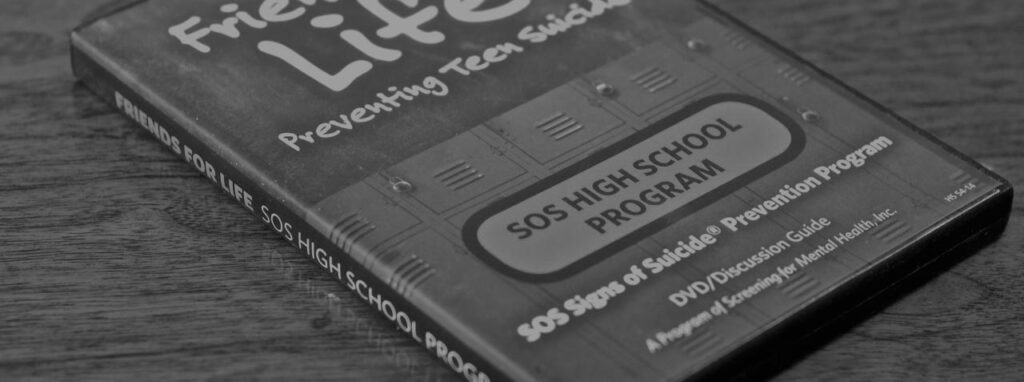 Screening for Mental Health, Inc.
×
Screening for Mental Health, Inc.
×

PREVENTION & EDUCATION
National Depression Screening Day was established in 1991 by Screening for Mental Health, a nonprofit organization dedicated to mental health screening and education. The initiative emerged from recognition that depression often goes undiagnosed and untreated, despite being one of the most common and treatable mental health conditions affecting Americans.
The first National Depression Screening Day took place with participation from a modest number of screening sites. Over three decades, the program has expanded dramatically, now reaching millions of Americans through thousands of participating locations including hospitals, community health centers, colleges and universities, military installations, corporations, and other community venues across all 50 states.
This growth reflects increasing awareness of depression’s prevalence and impact, as well as reduced stigma surrounding mental health screening and treatment. National Depression Screening Day has become a cornerstone event in national mental health awareness efforts, demonstrating the power of coordinated, accessible screening initiatives.
Depression affects more than 21 million American adults annually, according to the National Institute of Mental Health. Despite its prevalence, many individuals living with depression never receive diagnosis or treatment. Barriers including stigma, lack of awareness about symptoms, limited access to mental health services, and misconceptions about depression prevent people from seeking help.
Depression extends far beyond temporary sadness or normal emotional responses to life challenges. Clinical depression is a serious medical condition characterized by persistent feelings of sadness, hopelessness, and loss of interest in previously enjoyed activities. Physical symptoms including fatigue, sleep disturbances, appetite changes, and difficulty concentrating often accompany emotional symptoms.
Untreated depression significantly impacts quality of life, relationships, work performance, and physical health. Depression increases risk for chronic medical conditions including heart disease and diabetes, and represents a leading risk factor for suicide. Early detection through screening enables timely intervention, dramatically improving outcomes and preventing escalation of symptoms.
National Depression Screening Day provides free, confidential depression screenings through a network of participating sites nationwide. Organizations including healthcare facilities, educational institutions, workplaces, and community centers register to host screening events, receiving materials and support for implementation.
Screenings utilize validated assessment tools designed to identify symptoms consistent with depression. These brief questionnaires ask about mood, sleep patterns, appetite, energy levels, concentration, and other factors associated with depressive disorders. Trained professionals administer screenings and review results with participants, providing immediate feedback and recommendations.
Participants receiving concerning screening results obtain information about depression, treatment options, and local mental health resources. Many screening sites offer immediate consultation with mental health professionals who can provide more comprehensive assessment and referral to appropriate care. This direct connection between screening and treatment access represents a critical component of National Depression Screening Day’s effectiveness.
Online screening options complement in-person events, extending reach to individuals who cannot attend physical locations or prefer private, at-home assessment. Digital platforms provide immediate results and resources, making depression screening accessible year-round while National Depression Screening Day serves as an annual focal point for awareness and engagement.
PROMOTIONS & SUPPORT
Since its inception, National Depression Screening Day has screened millions of Americans for depression, identifying countless individuals who required treatment and might otherwise have remained undiagnosed. Research demonstrates that screening programs significantly increase detection of depression and connection to mental health services.
Beyond individual screenings, National Depression Screening Day generates broader public health benefits through increased awareness and reduced stigma. Media coverage, community events, and organizational participation normalize conversations about depression and mental health screening. This cultural shift encourages individuals to recognize symptoms in themselves and others, seek help proactively, and support loved ones facing mental health challenges.
Educational materials distributed during National Depression Screening Day reach far beyond screening participants, informing communities about depression symptoms, treatment effectiveness, and available resources. This widespread education builds mental health literacy, enabling earlier recognition of depression and more supportive community responses to mental illness.
Individuals can participate in National Depression Screening Day by attending screening events at participating locations or completing online screenings through reputable mental health organizations. Screening takes only minutes and provides valuable insight into mental health status. Even individuals not currently experiencing concerning symptoms benefit from baseline assessment and increased awareness of depression indicators.
Organizations interested in hosting National Depression Screening Day events can register as screening sites, receiving implementation toolkits, promotional materials, validated screening instruments, and technical support. Hosting screenings demonstrates organizational commitment to mental health while providing valuable services to employees, students, patients, or community members.
Healthcare providers, educators, employers, and community leaders can promote National Depression Screening Day through communications with their audiences, encouraging participation and sharing information about screening locations and resources. Social media campaigns, email communications, and workplace announcements extend National Depression Screening Day’s reach and impact.

RISK MANAGEMENT & LIABILITY
While National Depression Screening Day focuses annual attention on depression screening, mental health assessment should occur throughout the year. Many organizations that participate in National Depression Screening Day maintain ongoing screening programs, recognizing that depression can develop at any time and early intervention remains critical year-round.
Individuals concerned about depression symptoms should not wait for National Depression Screening Day to seek assessment. Free online screening tools provide immediate access to validated assessments, while primary care providers and mental health professionals can conduct comprehensive evaluations and recommend appropriate treatment.
National Depression Screening Day exemplifies the power of coordinated public health initiatives to address mental health challenges through accessible screening, education, and resource connection. As the program continues growing, it strengthens America’s mental health infrastructure while saving lives through early detection and intervention.
Depression remains highly treatable, with numerous effective interventions including psychotherapy, medication, lifestyle modifications, and support groups. National Depression Screening Day ensures that more Americans recognize depression symptoms, access screening, and connect with treatment, building healthier communities and brighter futures for individuals living with this common but serious condition. Through continued participation and support, National Depression Screening Day will remain a vital force in the ongoing effort to prioritize mental health and ensure all Americans can access the care they need and deserve.

FEATURED PROGRAMS
SOS Second Act is designed to build resiliency in young adults. In addition to reviewing the signs and symptoms of depression and suicidality, students are prompted to discuss substance abuse and other risky behaviors. Students are provided with a solid foundation on health care basics, health insurance, and self-care tips on seeking mental health treatment in the “real world.”
The Online Parent Brief Screen for Adolescent Depression (BSAD) allows parents to assess their child for suicide or depression risk factors. After parents complete a series of questions online, the screening provides results, local referral options (determined by each school), and relevant, educational information.